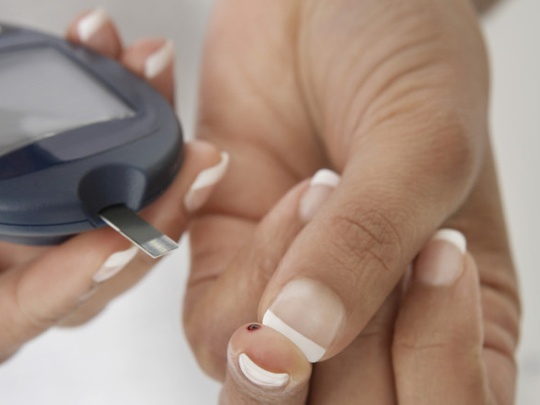
Dubai: Diabetics have to think twice about fasting during Ramadan. However, health experts say they can go ahead and do it provided they consult a doctor to achieve a safer fasting experience.
Depending on factors such as age or if a person has Type 1 or Type 2 diabetes as well as other medical conditions, a doctor may accordingly advise a patient whether to keep fast or not.
People with Type 1 diabetes fall in the high-risk category and they must talk to their doctor, said a Dubai-based health expert. Their bodies do not produce sufficient insulin and they need regular shots as well as timely meals to manage their condition.
Guidelines
Patients on insulin or medication may also be at risk of dehydration and fluctuating blood glucose levels, so it is essential for them to monitor their blood glucose levels every day. This is critical for those with Type 1 diabetes and for patients on insulin.
Food habits
Diet too plays a vital role in maintaining proper glucose levels. Diabetics are advised to consume foods that are absorbed slowly. Complex carbohydrates are recommended at suhour and the meal should include unpolished rice, brown bread and lentils.
Foods rich in carbohydrates and fat should be avoided, more so during iftar because it delays digestion and the body also finds it difficult to absorb fried foods soon after ending fast.
Fruit and vegetables contain natural sugars and help maintain glucose levels so they should be included in iftar as well as suhour. Dehydration is another issue with diabetics and it may become severe in hot conditions. People involved in hard physical labour lose fluid due to sweating. Experts advise drinking as much water as possible during non-fasting hours.
Busting some diabetes myths
MYTH: Diabetics should stay away from sugar.
Fact: It’s not true. Sweet dishes should not be cut off as long as it’s a part of a healthy meal and you’re working out to burn those extra calories.
MYTH: Diabetics should consume only special meals.
Fact: Special meals for diabetics offer little benefit. A well balanced diet which includes restricted sugars, carbs and fats works just as well. Moderation is the key.
MYTH: High protein foods help Fact: Eating too much protein, especially animal protein could cause insulin resistance. The diet should be healthy. Protein, carbohydrates and fats are important for body function so limited quantities are fine.
MYTH: Cut the carbs.
Fact: No you don’t have to as long as you keep portions small.
Eat high fibre foods and whole grain carbs such as unpolished rice and brown bread. They are digested slowly and help maintain blood sugar levels
MYTH: Exercise doesn’t help
Fact: That’s not true. In fact exercise decreases risk of diabetes-related complications, and better overall health.


